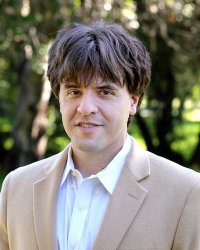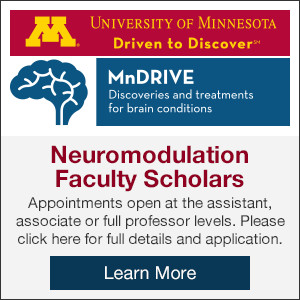 Karl Deisseroth is the D.H. Chen Professor of Bioengineering and of Psychiatry and Behavioral Sciences at Stanford University, and Investigator of the Howard Hughes Medical Institute. He received his undergraduate degree from Harvard, his PhD from Stanford, and his MD from Stanford; he also completed postdoctoral training, medical internship, and adult psychiatry residency at Stanford, and he is board-certified by the American Board of Psychiatry and Neurology. He continues as a practicing psychiatrist at Stanford with specialization in affective disorders and autism-spectrum disease, employing medications along with neural stimulation. In the engineering school he developed and launched the undergraduate degree in Bioengineering at Stanford, and continues to serve as Director of Undergraduate Education in Bioengineering, while also teaching yearly medical physiology and optics courses. National-scale service has included the NIH BRAIN Initiative Working Group and nonprofit disease foundations including the Brain and Behavior Research Foundation (NARSAD) and the Michael J. Fox Foundation for Parkinson’s Research. He was selected a Howard Hughes Medical Institute Investigator in 2013, began serving as a foreign adjunct professor at the Karolinska Institute in 2013, and was elected to the US National Academy of Medicine in 2010, to the US National Academy of Sciences in 2012, and to the German National Academy of Sciences (Leopoldina) in 2014.
Karl Deisseroth is the D.H. Chen Professor of Bioengineering and of Psychiatry and Behavioral Sciences at Stanford University, and Investigator of the Howard Hughes Medical Institute. He received his undergraduate degree from Harvard, his PhD from Stanford, and his MD from Stanford; he also completed postdoctoral training, medical internship, and adult psychiatry residency at Stanford, and he is board-certified by the American Board of Psychiatry and Neurology. He continues as a practicing psychiatrist at Stanford with specialization in affective disorders and autism-spectrum disease, employing medications along with neural stimulation. In the engineering school he developed and launched the undergraduate degree in Bioengineering at Stanford, and continues to serve as Director of Undergraduate Education in Bioengineering, while also teaching yearly medical physiology and optics courses. National-scale service has included the NIH BRAIN Initiative Working Group and nonprofit disease foundations including the Brain and Behavior Research Foundation (NARSAD) and the Michael J. Fox Foundation for Parkinson’s Research. He was selected a Howard Hughes Medical Institute Investigator in 2013, began serving as a foreign adjunct professor at the Karolinska Institute in 2013, and was elected to the US National Academy of Medicine in 2010, to the US National Academy of Sciences in 2012, and to the German National Academy of Sciences (Leopoldina) in 2014.
Over a period of less than twelve years, his laboratory created and developed both optogenetics (a technology for precisely controlling millisecond-scale activity patterns in specific cell types using microbial opsin genes and fiberoptic-based neural interfaces) and CLARITY (a technology for creating composites of biological molecules in tissue covalently linked to polymer hydrogels, allowing removal of unlinked tissue elements to create transparency and accessibility to macromolecular labels; the resulting new structure allows high-resolution optical access to structural and molecular detail within intact tissues without disassembly). He also has employed his technologies to discover the neural cell types and connections that cause adaptive and maladaptive behaviors, and has disseminated the technologies to thousands of laboratories around the world. For his discoveries, Deisseroth has received the NIH Director’s Pioneer Award (2005), the Zuelch Prize (2012), the Perl Prize (2012), the BRAIN prize (2013), the Pasarow Prize (2013), the Breakthrough Prize (2015) and the BBVA Award (2016), and among other honors, was the sole recipient for optogenetics of the 2010 Koetser Prize, the 2010 Nakasone Prize, the 2011 Alden Spencer Prize, the 2013 Richard Lounsbery Prize, the 2014 Dickson Prize in Science, the 2015 Keio Prize, the 2015 Lurie Prize, the 2015 Albany Prize, and the 2015 Dickson Prize in Medicine.

